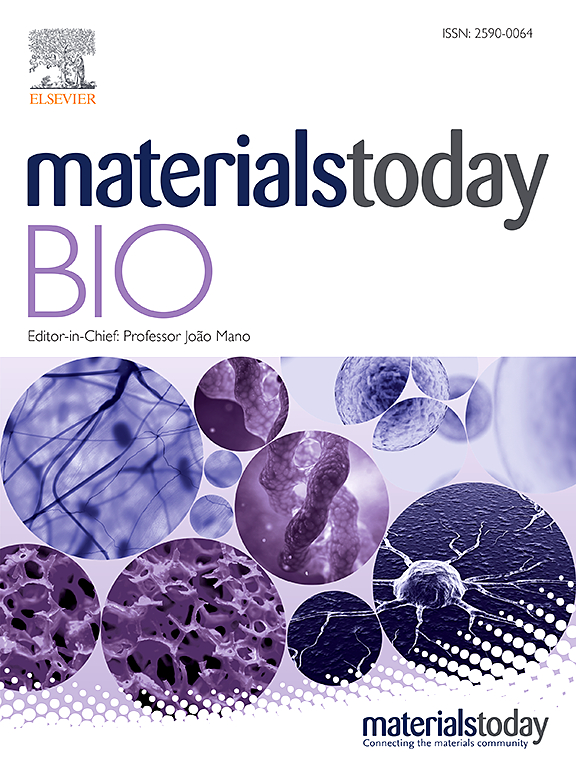Nanotechnology-driven strategies for gene therapy of arthritis
IF 10.2
1区 医学
Q1 ENGINEERING, BIOMEDICAL
引用次数: 0
Abstract
Arthritis remains a major global health burden, driven by chronic inflammation and irreversible joint damage, with current treatments often failing to achieve sustained remission. Gene therapy offers a promising strategy to address the root molecular causes by reprogramming dysregulated immune responses and promoting tissue regeneration. However, clinical translation is limited by delivery inefficiency, off-target effects, and immunogenicity. Recent advances in genetic technologies, including RNA-based therapies, DNA-based strategies, and CRISPR-Cas9 gene editing, have broadened the therapeutic toolkit for precise and durable gene modulation. Concurrently, the integration of nanotechnology has enabled the development of smart delivery platforms, such as lipid nanoparticles, polymeric carriers, inorganic nanostructures, extracellular vesicles, membrane-coated systems, and DNA nanoframeworks, to overcome biological barriers and enhance gene transfection. Moreover, emerging therapeutic strategies targeting immune modulation, synovial macrophage reprogramming, inflammatory signaling, cartilage preservation and regeneration, and pain relief further expand the clinical potential. This review provides a comprehensive overview of the key genetic tools, nanoplatforms, and therapeutic approaches driving next-generation gene therapy for arthritis, highlighting a multidisciplinary path toward precise, effective, and long-lasting treatment.

纳米技术驱动的关节炎基因治疗策略
关节炎仍然是全球主要的健康负担,由慢性炎症和不可逆的关节损伤引起,目前的治疗方法往往无法实现持续缓解。基因治疗提供了一个很有前途的策略,通过重新编程失调的免疫反应和促进组织再生来解决根本的分子原因。然而,临床翻译受到递送效率低下、脱靶效应和免疫原性的限制。基因技术的最新进展,包括基于rna的疗法、基于dna的策略和CRISPR-Cas9基因编辑,扩大了精确和持久的基因调控的治疗工具箱。同时,纳米技术的整合使得智能递送平台的发展成为可能,如脂质纳米颗粒、聚合物载体、无机纳米结构、细胞外囊泡、膜包覆系统和DNA纳米框架,以克服生物屏障并增强基因转染。此外,针对免疫调节、滑膜巨噬细胞重编程、炎症信号、软骨保存和再生以及疼痛缓解的新兴治疗策略进一步扩大了临床潜力。这篇综述提供了关键的遗传工具、纳米平台和治疗方法的全面概述,推动下一代关节炎基因治疗,强调了一条多学科的道路,以实现精确、有效和持久的治疗。
本文章由计算机程序翻译,如有差异,请以英文原文为准。
求助全文
约1分钟内获得全文
求助全文
来源期刊

Materials Today Bio
Multiple-
CiteScore
8.30
自引率
4.90%
发文量
303
审稿时长
30 days
期刊介绍:
Materials Today Bio is a multidisciplinary journal that specializes in the intersection between biology and materials science, chemistry, physics, engineering, and medicine. It covers various aspects such as the design and assembly of new structures, their interaction with biological systems, functionalization, bioimaging, therapies, and diagnostics in healthcare. The journal aims to showcase the most significant advancements and discoveries in this field. As part of the Materials Today family, Materials Today Bio provides rigorous peer review, quick decision-making, and high visibility for authors. It is indexed in Scopus, PubMed Central, Emerging Sources, Citation Index (ESCI), and Directory of Open Access Journals (DOAJ).
 求助内容:
求助内容: 应助结果提醒方式:
应助结果提醒方式:


